Sadae Kasaoka
Losing both my parents all at once, I had no words to describe my loss
3. My Parents’ Death
The next morning, Kichitaro came back, carrying Father on the cart, but I could not recognize the person lying on the cart as my father. He was all black from his head to his toes, looking as if black oil paint was squeezed from a tube and painted all over on his body. His face was swollen, and his eyes were wide open. His lips were curled like a pomegranate. He said, “Give me water!” and “I lost Kichi on the way,” and hearing his voice, I knew that he was my father. As we were told that if we gave water to the survivors, they would die soon, I told a lie to him, “The water supply has stopped.”
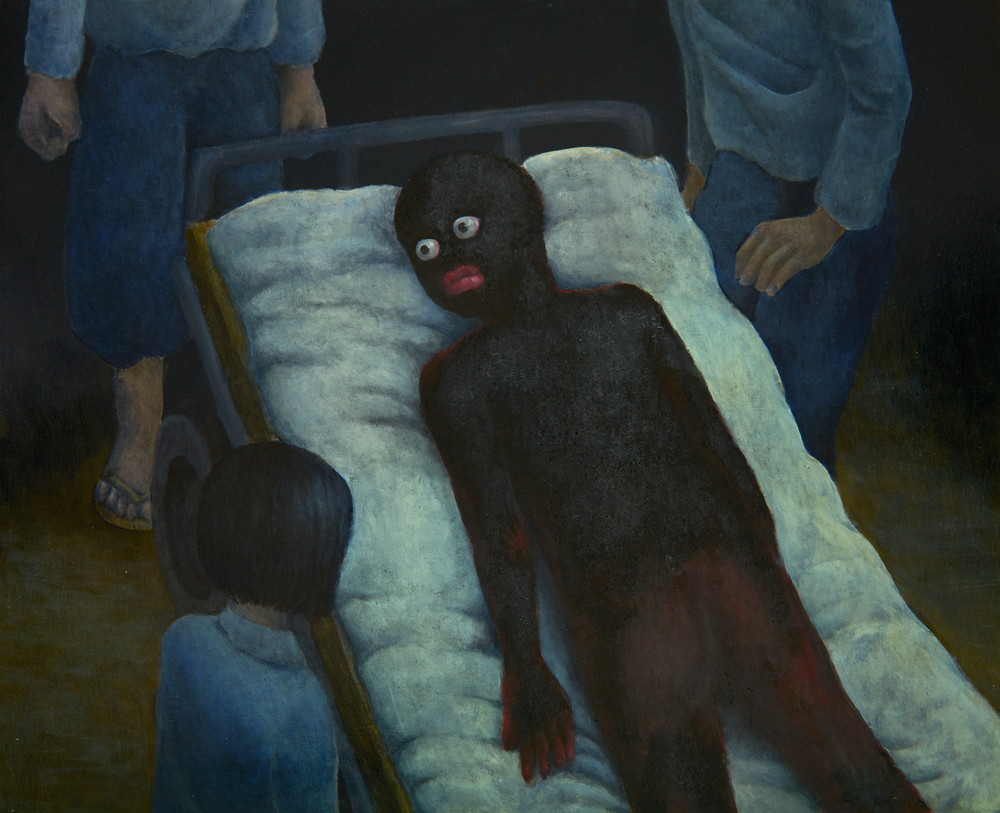
Because I could not give him water, I went to the field to find something for him and found red tomatoes. When I picked one and put it in my basket, I noticed beyond the field many people in rags sticking out their hands in front of their chests. Their hair was standing up and their bodies were gray or white. They were walking very slowly, which looked like a procession of ghosts. Later, I heard that their bodies were gray and white because they were covered by the dust and ashes produced up by the blast. I was so scared that I cried, “Ghosts!” and ran back to my house, forgetting all about the tomatoes. I think they were heading for the Army Hospital in Eba, a few hundred meters beyond of the field, but I wonder how many people could be treated there.
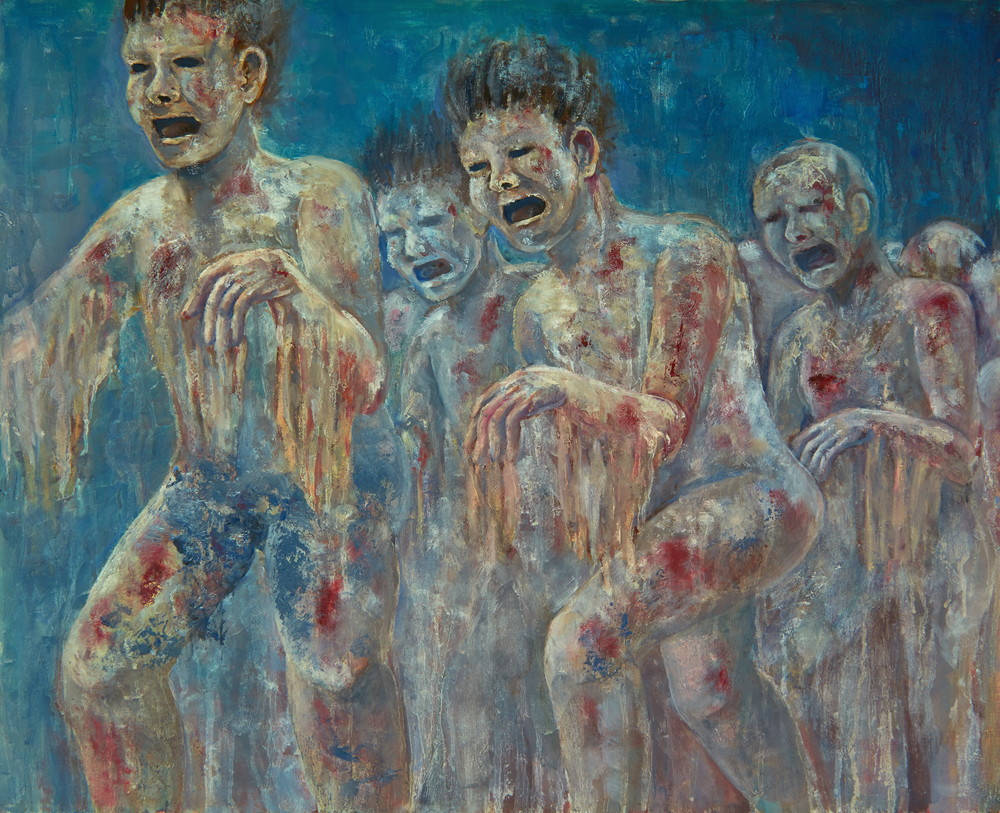
Father smelled strange. It was like the smell of rotten fish mixed with pus, an indescribably bad smell. As we didn’t have any ointment, we put a paste made of grated cucumbers and potatoes on his body, but his body was so hot that the paste dried up soon. If I touched his body even slightly, his skin peeled off. Then, flies gathered on his body, and I kept waving a fan so that flies could not gather there. Maggots, too, went into and came out of a living person’s body. I often hear other survivors saying that they picked out maggots with chopsticks. There were so many maggots in Father’s body that it was impossible to pick each one using chopsticks. I wanted to sweep all the maggots out with a broom.
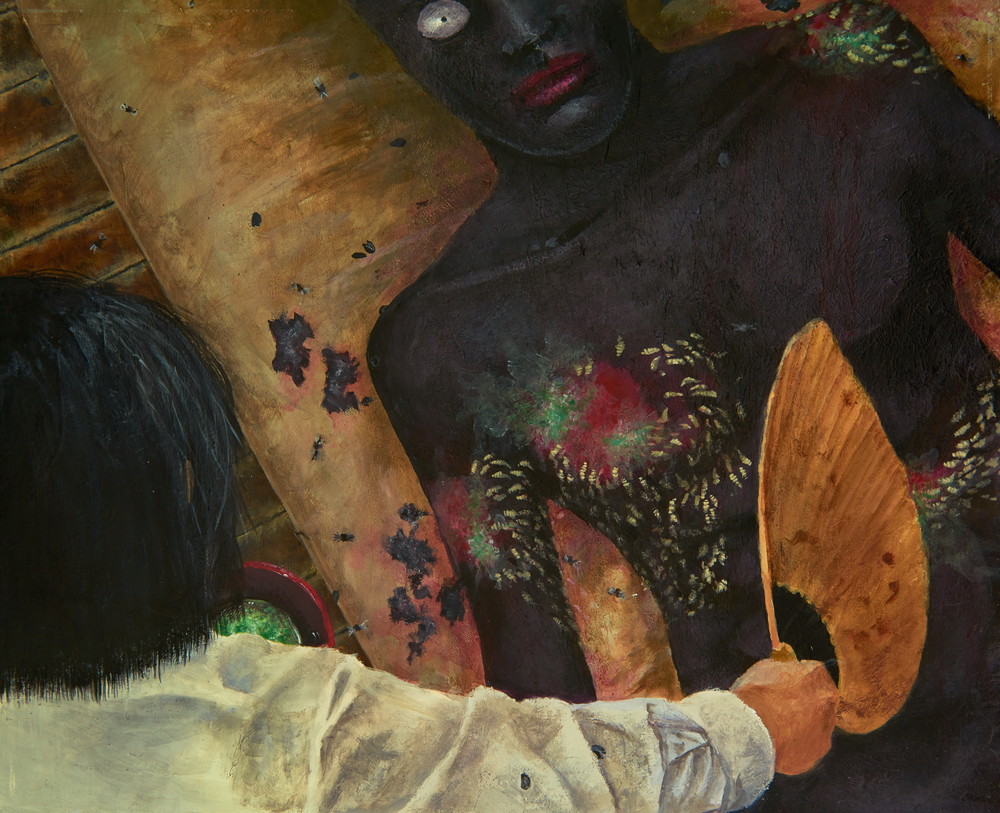
On August 8th, we realized that he was nearing death. I suddenly remembered that Mother had hidden beer in the storehouse for Father who liked alcohol. I rushed there, got one bottle and tried to let him drink it, but he could not drink it anymore, just spilling it. In the evening, he passed away. Until the end, he was worried about Mother who was missing, and Saijiro who had evacuated to the countryside. He desperately wanted water, but we didn’t give it to him. Thinking about it now, I feel pain in my heart even today.
After he brought Father back on August 7th, Kichitaro went out to find Mother and the next day, someone told him, “Your mother might have been transported to Ninoshima Island.” So he went to that island on August 9th. I don’t know why Mother was in Ninoshima Island apart from Father. She might have waited for a low tide to cross the river and go home. Then, an Army boat, which carried injured people to the island, might have happened to pass by, picked and taken her there.
Ninoshima Island, located 4.4km offshore to the south from Ujina Port, had an Army quarantine station. After the A-bombing, many injured people were taken to the station, as it was used as a temporary aid station. Finally, Kichitaro found Mother’s name on the victims’ list there. It was written that Mother had died on August 8th. He brought back a white bag ten centimeters square. Inside, there were hair and ashes. A lot of people must have been incinerated together in Ninoshima Island, so we were not sure whether the hair and ashes were Mother’s.
After Kichitaro came back, we put Father into a coffin and carried it to the beach. My grandmother’s acquaintance made the coffin for him. Big holes were dug here and there on the beach. Wood was thrown in those holes with the bodies and incinerated. While Kichitaro was digging the hole, I walked around to collect pieces of wood. When I went to the port nearby, a lot of bodies were floating between boats at moorings. As I was told that children should not look at the river which was full of bodies. I tried to look away, but bodies had drifted all the way to the port. Although I saw them, I felt nothing. I had already seen neighbors and friends die, and my father also died, so I might have lost feelings that ordinary people have.
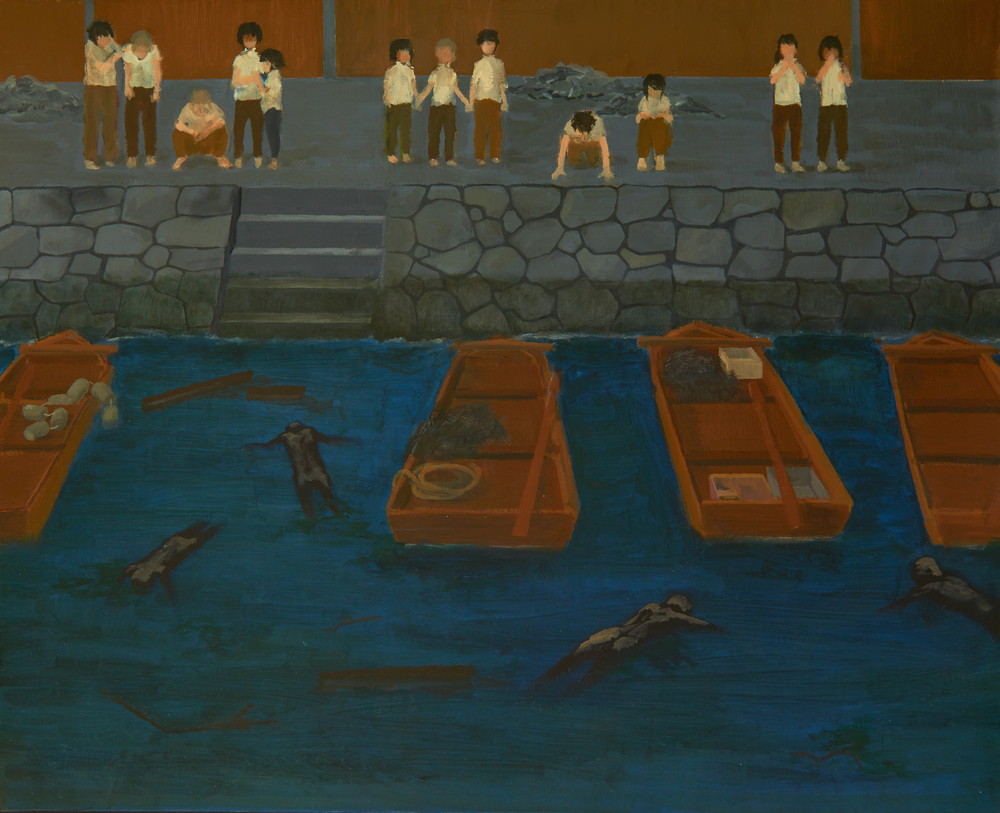
We put the coffin and wooden pieces I had collected into the hole and lit a fire. It took ten hours to burn the body completely. When the night got darker, blue fireballs floated in the air on the beach. Later, I heard that they were phosphorus coming from bodies, but it looked like victims’ souls were floating. Nobody wanted to die. They were all burned, leaving their regrets and anxieties behind, and I could not help feeling that their souls were floating there.
A few days later, when our life was settled a little bit, Shinae who was married and lived in Itsukaichi, went to Miyoshi, in northern Hiroshima, to bring back Saijiro who had evacuated there. On their way home, she didn’t tell him that our parents had died, so on arriving home, he called out loudly, “Father and Mother, I’m home!” When Kichitaro pointed at the Buddhist altar, Saijiro was so stunned that he couldn’t even cry.
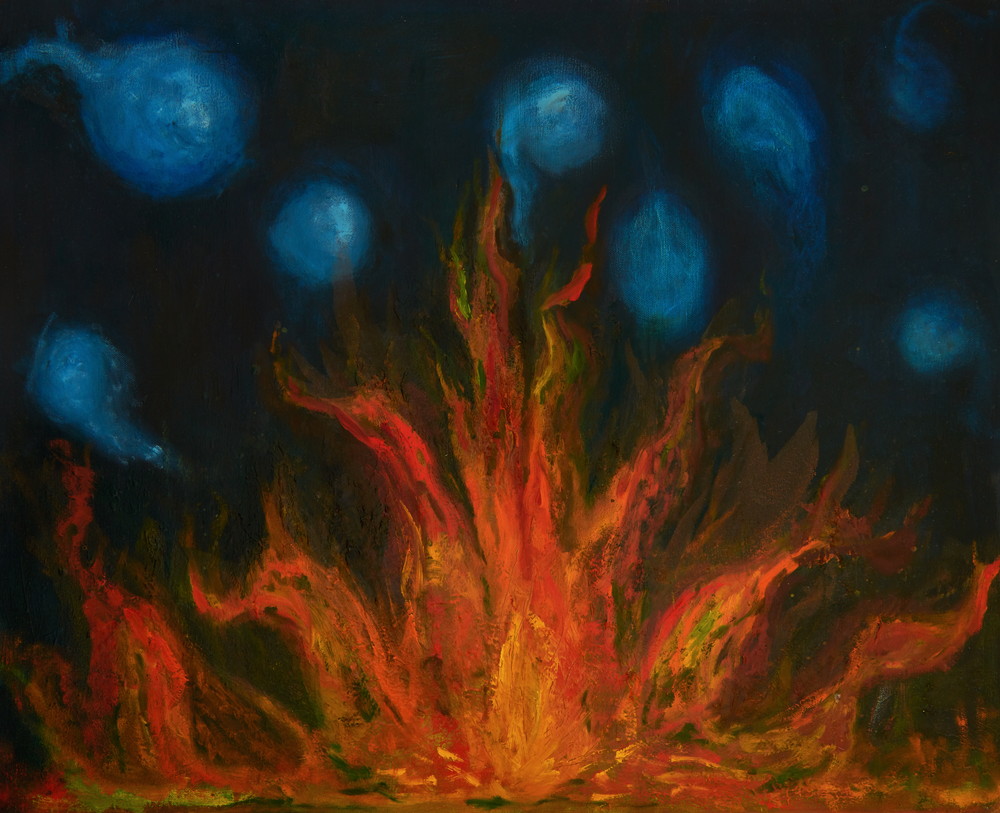
(drawn by Nao Tatsugawa)